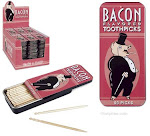Counting Down The Zeros - An Anti Hero For The Year 2001
Upon further viewings, I have come to love this film. I have said it before, and I will say it again - The Royal Tenenbaums is as close to a piece of art on film as I have ever seen. Every scene is perfectly framed. Every movement, perfectly choreographed. Every line, perfectly delivered. There are so many things to write about this film. I could do a weeks worth of material, but I'll spare you all from that. Ric at Film For The Soul has told me that for Counting Down The Zeros, I have carte blanche which may or may not be a good thing. So instead of writing a traditional review, I'm instead going to write about my favorite character of the film, Royal Tenenbuam.
Royal Tenenbaum is a piece of work. At one moment repulsive, the next touchingly sweet. Royal calls them as he sees them, and does so with the tact of a five year old. One can stand around and debate whether Royal is an asshole or simply just a son-of-a-bitch for hours. The evidence is certainly there. But then you'd miss the fact that he is the glue of the Tenenbaums. As dysfunctional as all of them are, they are less so when Royal is around.
After being separated from his wife and family for several years, Royal attempts to get back into the family fold by faking stomach cancer. It's a shrewd ploy, but it plays off the universal truth that crisis brings us together. Crisis makes us forgive and forget. But there's a lot of forgiving and forgetting to be done and Royal hasn't given himself much time.
One can always question Royals intentions. Does he still love Etheline? Does he even love his children? The story plays as if Royal is attempting to redeem himself. To ask forgiveness. His disease is fake, but Royal truly acts as if he has one last shot to make things right. Only times are different. The children are grown up and they are facing real-life problems. Richie's suicide. Chas' inability to deal with the death of his wife. Margot's attachment issues. Even Eli's drug addiction. But like all anti-heroes, Royal falls into each situation and rises to the occasion.
What makes Royal so amicable is that he's played by Gene Hackman. It's hard to imagine anyone else playing this character, which goes to show how perfect Hackman made it. Played by a lesser, this could have been a disaster. All asshole and no heart. There is a struggle within Royal of wanting to do bad, but trying to do good and Hackman always keeps a good balance without tipping one way or the other. Hackman does just enough to show that Royal is redeemable without going overboard. There's an exchange between Royal and Richie towards the end of the movie. When Royal tells him that this near death experience has given him a new lease on life, Richie reminds him that he's not dying. Royal's response to this is "but I'm going to live." It's a great line not only for its humor, but for the volumes it says about the character. And Hackman delivers it with a kind of glee that makes you love the character, even when he's bullshitting you. And there's another line around the same time. Royal says "the past six days have been the best six days of probably my whole life." The narrator then follows with "immediately after making this statement, Royal realized that it was true." Even without the narration, you believe Royal because Hackman's performance makes it true.
As much of a character as Royal might be, he's still a real person, facing real problems. Take away all his quirks, and he's just a guy looking for redemption. It's a universal message and what I think is interesting is the way Wes Anderson has spun it. There are those who believe that some things can never be mended. That if you let the problems go too long, the pain becomes too deep. Yet, the story of Royal and the Tenenbaums tells us that it's never too late. That love comes in many forms and that love is unconditional. And because of that even the worst characters are redeemable. Even Royal.



















![Validate my Atom 1.0 feed [Valid Atom 1.0]](valid-atom.png)
5 comments:
The best film of the decade and one of my top ever actually. no joke. Hackman's performance was phenomenal and deserved to be honored by everyone who had an honor to give. Royal is in himself Wes Anderson's best work. I love everything about this film but Royal is my favorite. Among a cast of standouts, I also think Luke Wilson and his character Richie were amazing
Casey,
You don't have to justify Royal Tenenbaums being in your top five to me. It's definitely in my top 5. No question about it.
And Richie's breakdown on the tennis court is magnificent.
This was a great post and only one person commented? I am outraged.
I saw Get Shorty the other night and Hackman seemed to be warming up for the part in Tennebaum's.
my mother taught me that if you don't have anything nice to say...
sorry pipes, i just don't see it.
i watched it and didn't like it.
EVERYONE raved over it, still didn't like it. raving continued so i watched a 2nd time months later with fresh eyes. still didn't like it.
all the quirky characters just seemed too formulaic for me. i wasn't biting. it looked great and the music was good too, but the rest was...meh
12XU,
I hear ya. Lord knows there are a lot of films out there that I should like but don't.
I saw Rain Man three times because I thought I was missing something. But I just hated it.
Post a Comment